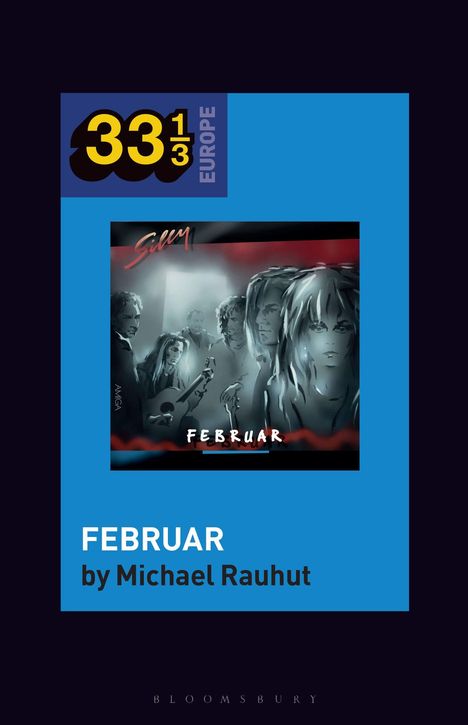Michael Rauhut: Silly's Februar, Kartoniert / Broschiert
Silly's Februar
Sie können den Titel schon jetzt bestellen. Versand an Sie erfolgt gleich nach Verfügbarkeit.
- Herausgeber:
- Fabian Holt
- Verlag:
- Bloomsbury Academic, 05/2026
- Einband:
- Kartoniert / Broschiert
- Sprache:
- Englisch
- ISBN-13:
- 9798765109311
- Artikelnummer:
- 12177174
- Umfang:
- 160 Seiten
- Gewicht:
- 454 g
- Maße:
- 197 x 127 mm
- Stärke:
- 25 mm
- Erscheinungstermin:
- 14.5.2026
- Serie:
- 33 1/3 Europe
- Hinweis
-
Achtung: Artikel ist nicht in deutscher Sprache!
Weitere Ausgaben von Silly's Februar |
Preis |
|---|---|
| Buch, Gebunden, Englisch | EUR 100,40* |
Klappentext
A portrait and analysis of East German band Silly's popular music masterpiece, Februar, that mirrors the collapse of socialism.
In early 1989, nine months before the fall of the Berlin Wall, the band Silly released Februar , one of the most important albums in the history of rock music in the GDR. The record was both-an artistic masterpiece, and an eloquent sign of the times, with lyrics that commented on the political erosion afoot in East Europe and anticipated the collapse of socialism. That the words were able to overcome the hurdles typically set by censorship in the GDR owed in part to the extraordinary origins of the album. Februar was the only large-scale popular music coproduction between East and West Germany, jointly realized by Amiga in socialist East Germany and Ariola in the capitalist West. Ariola assumed the costs for the album, assuring itself the final say. Recorded in West Berlin, the album was released in both Germanies. Yet just as the song sequence and narrative of the record varied considerably from East to West, so too did its presentation and reception.Februar illustrated the divergent meanings rock music held in the rival societies, confirming its special power in the GDR. Differently from what black-white interpretations suggest, rock in East Germany developed along lines marked by unexpected possibilities, productive contradictions, and constant negotiations between artists and the state. This is the subject of this book. It portrays Februar as the culmination of a long-process of self-empowerment, throughout which Silly gained increasing artistic and political leeway.
Biografie (Michael Rauhut)
Michael Rauhut; Jahrgang 1963; Studium der Musikwissenschaft; seit 1984 Mitarbeiter des Forschungszentrums populäre Musik in Berlin; 1993-2000 Mitarbeiter des Instituts für zeitgeschichtliche Jugendforschung; seit 2008 Prof. für populäre Musik an der University of Agder in Kristiansand/Norwegen.
